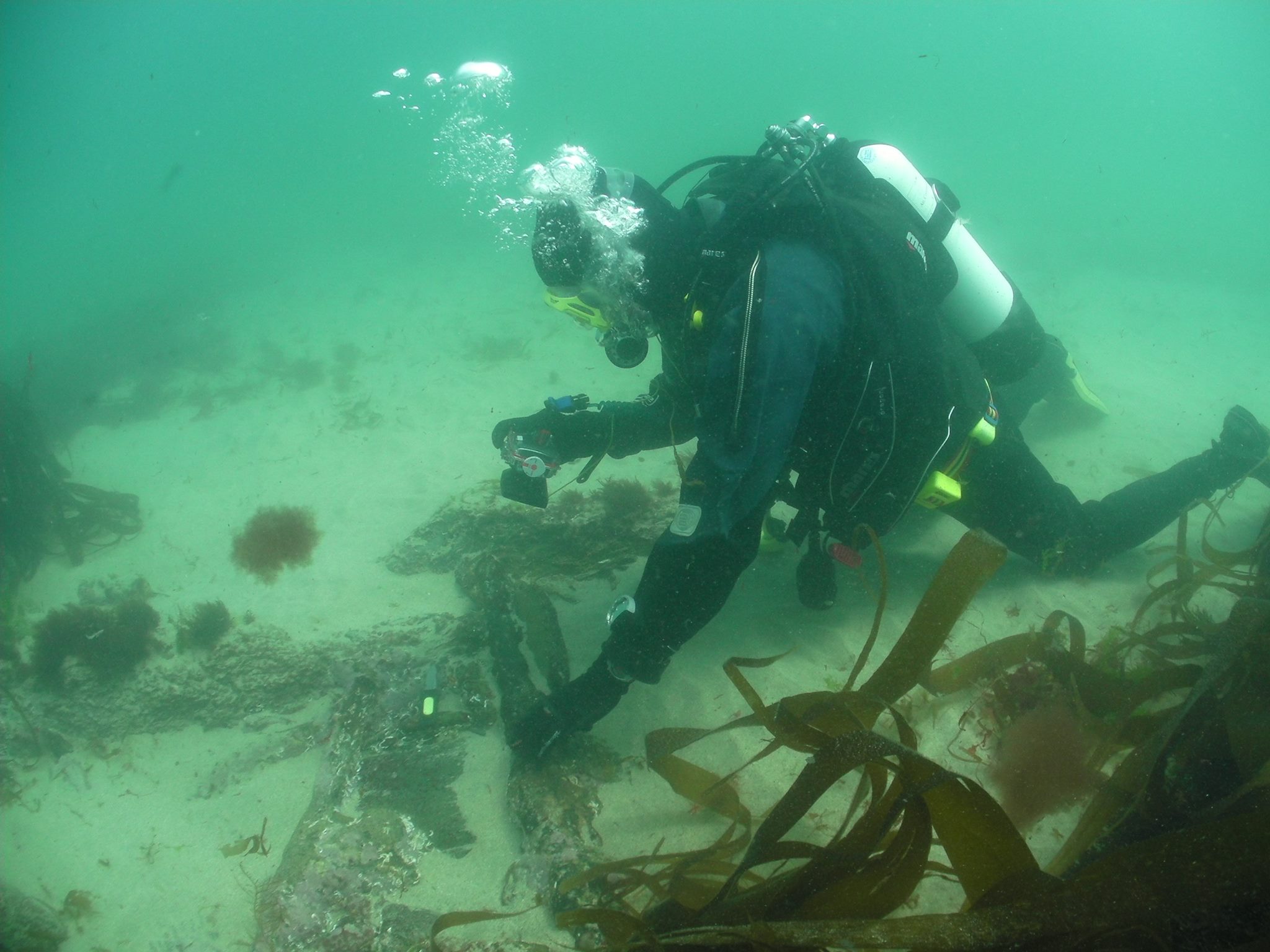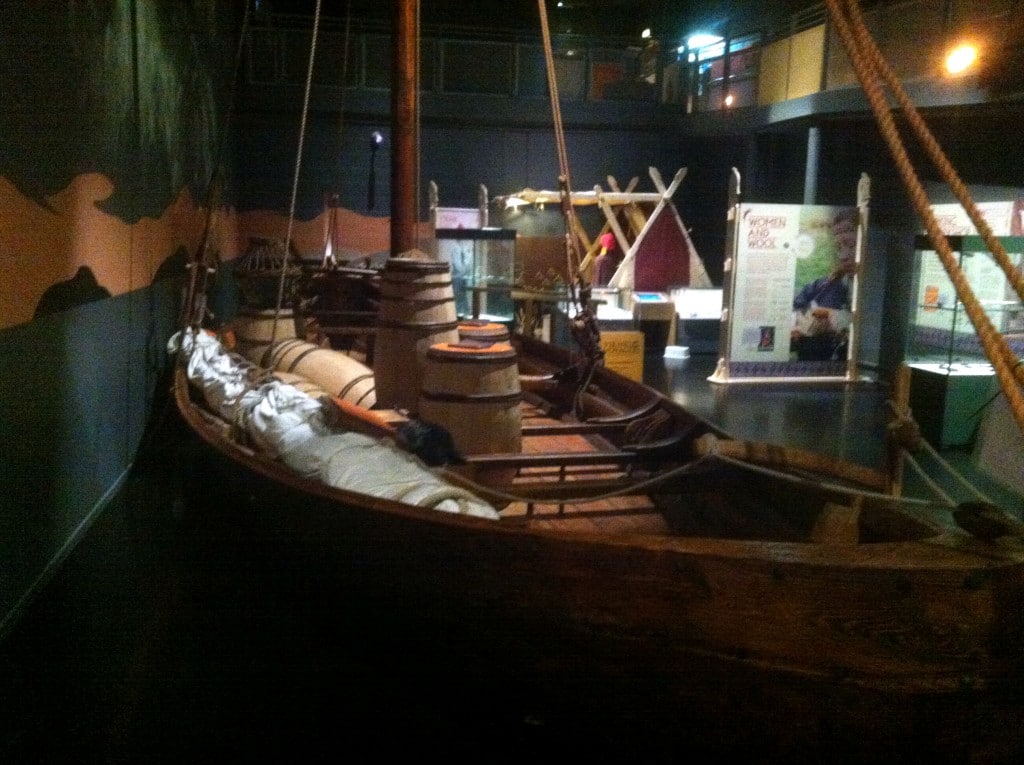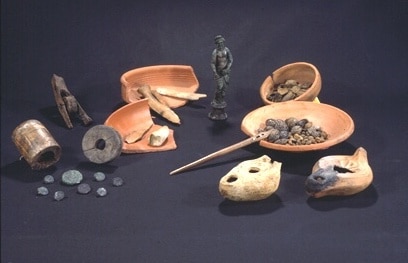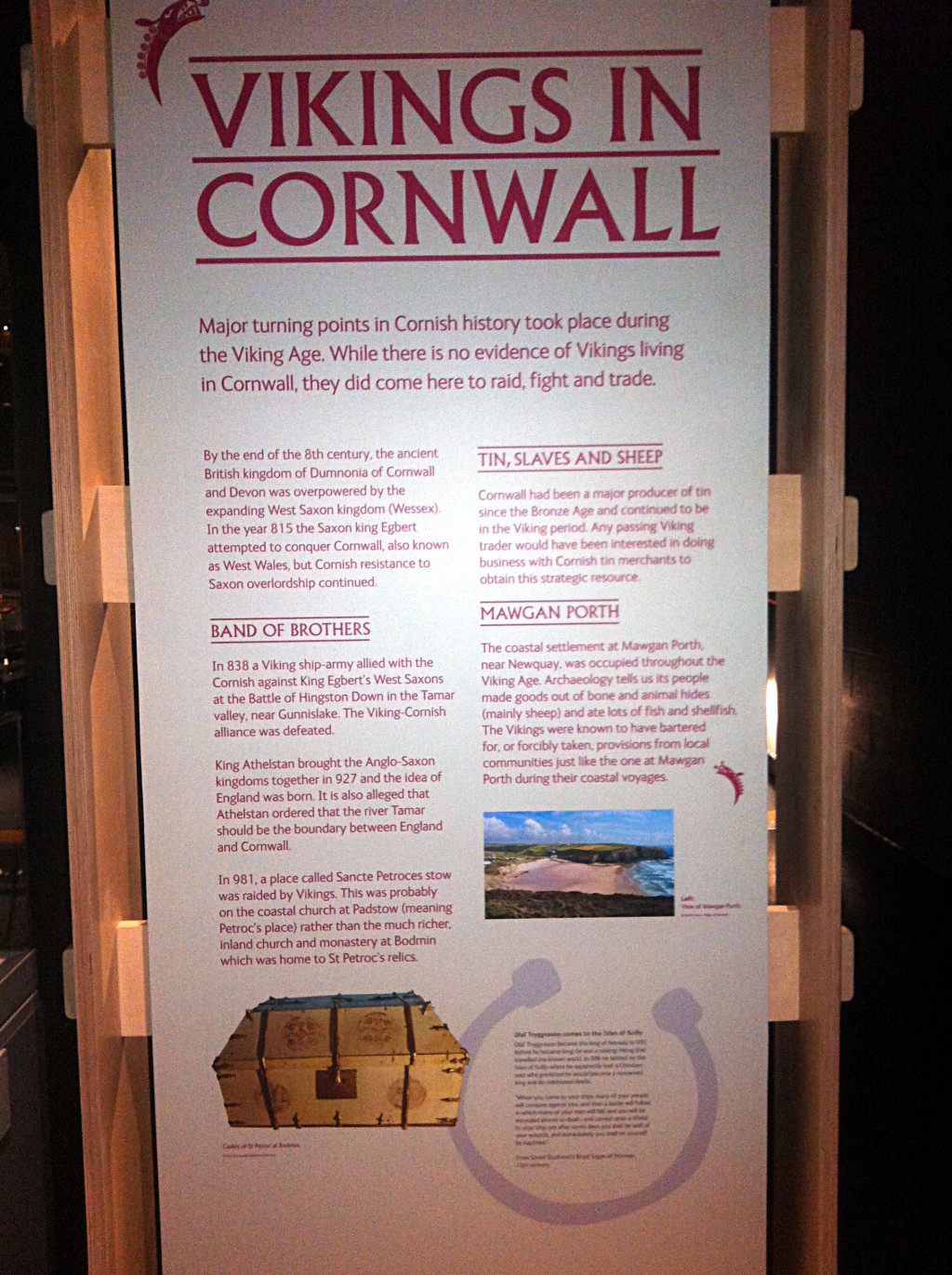News
Mark Milburn’s Cornish Wreck Ramblings, Part 10: Ancient Times

Cornwall is well known for its tin mining industry; the iconic engine houses can still be seen around the countryside. It is an ancient industry, starting well over 2,500 years ago. Production of tin, a constituent of bronze, was important worldwide especially during the bronze age. This brought traders. There is a rumour that the Phoenicians came to Cornwall to trade for tin, although there has been no evidence to prove that, yet. On an old hand drawn local chart, in an area near St Michael’s Mount, there is a written comment stating ‘Phoenician’s objects found’. What these ‘objects’ were, or where they are now, is unknown.

 Whether the Phoenicians actually made it to Cornwall may never be known. The author David Gibbins writes of a Phoenician wreck off the Cornish Coast in his book Testament. Although Testament is fiction, several of David Gibbins stories from his books have actually come true. Whether or not the Phoenicians came to Cornwall, there would have been other traders coming by sea, from that era.
Whether the Phoenicians actually made it to Cornwall may never be known. The author David Gibbins writes of a Phoenician wreck off the Cornish Coast in his book Testament. Although Testament is fiction, several of David Gibbins stories from his books have actually come true. Whether or not the Phoenicians came to Cornwall, there would have been other traders coming by sea, from that era.
The Romans may have conquered a large part of the known world, including England. They did not conquer Cornwall, although they did trade with her. There are very few known Roman settlements in Cornwall, it was too remote and the Cornish were probably too efficient at producing tin. The Romans knew that if they tried to take control, tin production might fall. It was far easier to trade.
There are lots of Roman finds around Cornwall; a lot, considering they never really occupied the area. Roman tin traders would have travelled by land as well as by sea. Rumours of Roman wrecks have been passed down locally and amphora are believed to have been recovered in the past. I have been told this from two separate sources with regards to two separate locations. There is a very big chance that there are more to be found.

 Apart from amphora, we would expect to see remains of weapons and even quern stones. Quern stones are corn grinding stones, something the Romans were believed to carry on all their vessels. They would be used for grinding corn to make flour, which they could use to make bread, soups or cornmeal. I have found a quern stone, as has another local diver. They are hard to date but are both estimated to be over a thousand years old. They would also have a hearth, terracotta and bronze containers and utensils, maybe even a mortar. Roman warships had large bronze spikes at the bow to pierce any vessels they rammed, but, unfortunately, their merchant vessels did not have these.
Apart from amphora, we would expect to see remains of weapons and even quern stones. Quern stones are corn grinding stones, something the Romans were believed to carry on all their vessels. They would be used for grinding corn to make flour, which they could use to make bread, soups or cornmeal. I have found a quern stone, as has another local diver. They are hard to date but are both estimated to be over a thousand years old. They would also have a hearth, terracotta and bronze containers and utensils, maybe even a mortar. Roman warships had large bronze spikes at the bow to pierce any vessels they rammed, but, unfortunately, their merchant vessels did not have these.
The Vikings visited Cornwall, not to live, but to raid and trade. They made several raids including one as far around the coast as Padstow in 981AD. They would have traded for tin as it was still an important commodity. Viking ships were fast but lightweight and constantly needing repair. Riding a storm out on the Cornish coast is hard in any small vessel, so the Viking vessels would stand little chance. Unfortunately, there was little to a Viking ship, other than wood and small iron nails. So, if one was ever found, it would be very hard to work out what it was from the cargo alone. Although finding anything ancient in the waters around Cornwall would be highly unlikely, it would certainly be of national archaeological importance.
Find out more about Mark and Atlantic Scuba at www.atlanticscuba.co.uk
Gear News
Introducing the TR-80, IR-50 and CS-30 Regulators from DYNAMICNORD

Whether you are a beginner or a professional diver – with the three new main regulators from DYNAMICNORD, everyone will find their favourite regulator. They all look super stylish.
Excellent performance with the TR-80
Quality and performance are the be-all and end-all for regulators. It is not for nothing that the TR stands for Tec Reg. The innovative design of the TR-80 guarantees absolute reliability – even in ice-cold waters.

Perfect breathing effort at 0.8 J/l / certified for diving in waters below 10 degrees / structural design made of solid brass for best cold protection / membrane-compensated design with dry seal of the first stage / reduced exhalation effort thanks to optimized exhalation membrane and bubble deflector / adjustable Venturi (dive/predive) and adjustment knob for individual inhalation comfort / innovative design of the front cover prevents free-flow in strong currents or when diving with scooters / design made of sandblasted brass, matt chrome finish / 2 HP and 4 LP outlets / mouthpiece made of high-quality, anti-allergic silicone for maximum comfort.


Amazing underwater adventures with the IR-50
The IR-50 is the top regulator for advanced and experienced divers. Natural breathing is the essence of this regulator.

Ideal breathing effort at 0.8 J/l /certified for diving in waters below 10 degrees / compensated membrane / adjustable venturi (dive/predive) and adjustment knob for individual inhalation comfort/ outlet valve and deflector for minimum exhalation effort and reduction of bubbles on the face / design made of sandblasted brass, matt chrome finish / 2 HP and 4 NP outlets / mouthpiece made of high-quality, anti-allergic silicone for maximum comfort.


The Workhorse – our CS-30
For diving centres and diving beginners – the workhorse stands for strong construction, reliability and robustness. Perfect for your training.

Optimal breathing effort at 0.8 J/l /recommended for diving in waters above 10 degrees / non-compensated piston / adjustable venturi (dive/predive) / outlet valve and deflector for minimum exhalation effort and reduction of bubbles on the face / design made of sandblasted brass, matt chrome finish / 1 HP and 3 NP outlets / mouthpiece made of high-quality, anti-allergic silicone for maximum comfort.


Octopus OP-30
The OP-30 is the ideal addition to all DYNAMICNORD regulators. It is identical in construction to the CS-30.

The TR-80, IR-50, CS-30 (DIN & INT) regulators and the Octopus OP-30 are available from DYNAMICNORD dealers and in the online store.
DYNAMICNORD – Your Outdoor Companion.
Marine Life & Conservation
Paul Watson Released as Denmark Blocks Japan’s Extradition Bid

Renowned anti-whaling activist Paul Watson has been released from custody in Greenland after spending five months in detention. Denmark’s Justice Ministry rejected Japan’s request for his extradition, citing insufficient guarantees that his time already served in custody would be credited against any potential sentence.
The 74-year-old Canadian-American was arrested on July 21 in Nuuk, Greenland’s capital, when his ship docked to refuel. His arrest was based on a 2012 Japanese warrant related to a 2010 encounter in Antarctic waters. Japan alleged Watson obstructed operations and caused damage to a whaling research ship during efforts to disrupt illegal whaling. Watson has consistently denied these claims, maintaining his commitment to marine conservation.
Denmark, which oversees extradition matters for Greenland, concluded that while the legal conditions for extradition were met, the lack of assurances from Japan regarding time-served credit made extradition untenable.
In a video shared by his foundation, Watson expressed gratitude and relief, saying, “After five months, it’s good to be out… and good to know they’re not sending me to Japan.” He added that the most difficult part of his time in custody was being separated from his two young sons.
Watson is a pioneering figure in marine conservation, known for founding the Captain Paul Watson Foundation in 2022 after decades of activism with the Sea Shepherd Conservation Society. His bold efforts to defend marine life have earned him widespread support, including from celebrities and conservationists. His work has also been featured in the acclaimed reality TV series Whale Wars.
Watson’s lawyer, Jonas Christoffersen, praised the decision, stating, “We are happy and relieved that Paul Watson is now free.” He added that Watson is eager to reunite with his family and continue his vital work.
The arrest occurred while Watson’s vessel, the M/Y John Paul DeJoria, was en route to the North Pacific with a team of 26 volunteers to intercept a Japanese whaling ship. His foundation described the arrest as politically motivated and emphasized that Watson’s actions were focused on ending illegal whaling practices.
Japan resumed commercial whaling in 2019 after leaving the International Whaling Commission, asserting that whale meat is a cultural tradition. Conservationists, however, continue to challenge these practices, highlighting their impact on marine ecosystems.
Despite the challenges, Watson remains steadfast in his mission to protect marine life and bring attention to whaling practices. His dedication to ocean conservation has made him a globally respected advocate for the environment.
-

 News2 months ago
News2 months agoIconic SS United States to become the World’s Largest Artificial Reef
-

 News3 months ago
News3 months agoBook Review – 52 Assignments: Underwater Photography
-

 Gear News3 months ago
Gear News3 months agoDYNAMICNORD – New German diving brand enters the British market
-

 News3 months ago
News3 months agoExploring Cenote El Pit: A Diver’s Dream
-

 Gear News3 months ago
Gear News3 months agoTry BARE drysuits (and maybe even win one!) this Friday with Sea & Sea at North West Dive Fest
-

 Marine Life & Conservation3 months ago
Marine Life & Conservation3 months agoBook Review: Coral Triangle Cameos
-

 Blogs3 months ago
Blogs3 months agoDive the Egyptian Red Sea this Autumn with Regaldive
-

 News3 months ago
News3 months ago2024 Ocean Art Underwater Photo Competition Announced















